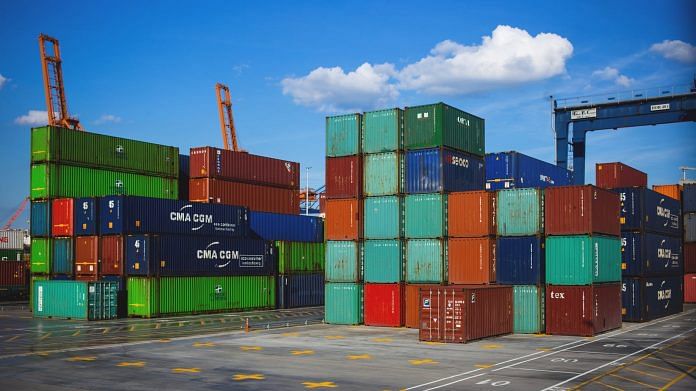Seoul: Some of the world’s biggest exporters in Asia are intervening to alleviate a shipping container shortage that jeopardizes their overseas trading.
Government-owned Indian Railways has moved empty boxes to inland depots like Delhi from seaports for free. South Korea has deployed an extra nine vessels on the Trans-Pacific route to help local manufacturers while China’s state-owned shipyard, Cosco Shipping Heavy Industry, has converted at least one freshly built paper-and-pulp carrier to transport the containers.
The state-backed companies and governments are working quickly to smooth disruptions on the supply side of global trade to avoid losing business, even as clogged ports like Los Angeles trigger import delays and freight costs remain high. Asian economies remain deeply reliant on exports to Europe and North America to line government coffers.
“The state has a far bigger role within shipping in Asia, with equity stakes in numerous shipping lines, shipyards and terminals,” said Simon Heaney, senior manager of container research at Drewry Shipping Consultants Ltd. “That influence is much less prevalent elsewhere in the world.”
Indian Railways is discussing if its current 25% discount for moving empty containers inland along some routes needs to be extended beyond March, according to Manoj Singh, executive director for freight traffic and transportation. The carrier offered free carriage at least twice last year and hasn’t ruled out waiving all charges again when it reviews the situation at the end of the month, he said.
Container Corp. of India Ltd., on whose board Singh sits, is also moving containers to neighboring countries such as Sri Lanka and Bangladesh to help ease the shortage, he said. Typically the company would only move the boxes to facilitate domestic shipments.
That coincided with a turnaround in India’s trade, with both exports and imports witnessing two consecutive months of growth since December after record declines last year due to the pandemic.
“Exporters and their industry groups are noisier and more active lobbyists on these types of issues,” said Daniel Richards, a senior analyst at Maritime Strategies International Ltd., a shipping consultancy. “When you add to that the importance of the export sector to most Asian economies you can see why these governments have at least made efforts to be seen to be proactive.”
But even countries less reliant on exports than powerhouses like China or South Korea are looking at ways to unclog global trade arteries.
The UTLC Eurasian Rail Alliance reduced tariffs last April for transporting empty containers via its Europe-China link. The company jointly formed by the state railways of Russia, Kazakhstan and Belarus said that this would help “avert the shortage of containers for loading in China.”
To some extent, state intervention can run counter to steps corporations have taken in response to disruptions driven by the pandemic. For instance, Hapag-Lloyd is raising freight rates next month to ship boxes from Europe to India’s Nhava Sheva port, the company said this month.
Government role is limited and market forces will ultimately determine how things pan out, said Ajay Sahai, director general at the Federation of Indian Export Organisations.
“The best thing governments can do is ensure rapid and effective vaccination of their populations so that landside logistics labor capacity and productivity can be restored to pre-pandemic levels,” said Heaney. “That will do a lot to improve the circulation of containers.”-Bloomberg
Also read: How a container crisis has led to food piling up in all the wrong places



